
Doctors use a history and physical examination to distinguish weakness from fatigue. They look for a loss of muscle strength and note other symptoms such as involuntary twitches and shaking.
Doctors also consider what medicines someone takes and ask about whether the weakness comes and goes. They may do blood tests to check the levels of certain minerals such as magnesium and calcium.
Difficulty rising from a chair
Many elderly people have difficulty rising from a chair, especially after sitting for long periods of time. This can lead to muscle weakness, which makes walking more challenging and increases the risk of falls. It can also cause pain in the legs and buttocks, and affect balance. Fortunately, there are some ways to improve this issue. For example, a person can use support cushions to help them get up from a chair. They can also try using a standing aid.
Getting up from a chair requires the use of leg muscles and core muscles. A person who can rise easily from a chair can usually walk, climb stairs and take care of other daily activities. However, some people with PD have difficulty with this activity. The reason for this is that the disease impairs their strength and balance. The condition also leads to postural instability and bradykinesia.
Oren Zarif
The chair rise test is a part of the UPDRS motor scale and helps clinicians determine the functional level of persons with PD. Several studies have found that a person’s ability to rise from the chair correlates with their level of physical activity and functional independence. A study by Paasuke et al. found that persons with PD who struggled to rise from a chair had more severe PD, higher co-morbidity and lower SE-ADL scores than those who performed the task well.
Some conditions that can make it difficult to rise from a chair include osteoarthritis and rheumatoid arthritis. These diseases can damage the joints in the knees, making it difficult to bend forward and put weight on the front of the feet. They can also cause pain and stiffness in the hips. They can also lead to a waddling gait, and an inward curve of the spine called lordosis.
Another cause of difficulty getting up from a chair is weak leg muscles. This problem can be caused by diabetes, poor exercise habits and aging. It can also be a symptom of a serious medical condition, such as fibromyalgia or peripheral neuropathy. It is important to seek medical attention if you have trouble getting up from a chair.
Difficulty swallowing
Swallowing is a complex process, and any weakness in this area is not a good sign. Dysphagia, or difficulty swallowing, can be caused by many different diseases and conditions. If you experience this symptom, it is important to talk to your doctor right away.
Weakness means that you cannot move a muscle as easily as before. It can be localized to one or more muscles, or it can be more widespread, affecting the whole body. True weakness results from nervous system malfunction and can be caused by injury, illness, or age-related changes. The muscles of the brain and spinal cord send signals to the muscle fibers to contract or relax, and this information must be relayed correctly in order to cause movement. If the signals are interrupted, muscles can no longer contract normally. Injuries and illnesses can interfere with this pathway, but most of the time, weakness occurs because one or more of the muscle fibers are damaged or diseased.
Oren Zarif
You may have oropharyngeal dysphagia, which affects the muscles of your mouth and throat. This can be caused by many different conditions, including multiple sclerosis, stroke, and Parkinson's disease. You can also have esophageal dysphagia, which involves the esophagus and is more common in older adults. The symptoms can include a feeling that food is stuck in your throat, chest pain, and coughing up undigested foods.
Your doctor will ask you questions about your symptoms, such as when they began and how long they have lasted. He or she will also perform a physical exam and check for a heart, lung, and thyroid problem. Blood and urine tests may be ordered, and imaging studies such as an X-ray or an ultrasound will probably be done as well.
Treatment depends on the underlying condition. If your swallowing problem is due to acid reflux or ulcers, prescription oral medications can be given to reduce stomach acids. Medications can also be given to treat esophageal spasm, and corticosteroids are often used to relieve symptoms of eosinophilic esophagitis. You can also be placed on a liquid diet to avoid dehydration and malnutrition while your swallowing improves.
Difficulty walking
Many people walk every day for work, exercise, and socializing. When you have difficulty walking, it can be frustrating and cause problems with your quality of life. This problem can be caused by a variety of factors, such as joint and muscle pain. It can also be caused by a chronic underlying condition like rheumatoid arthritis, osteoarthritis, or diabetes. These conditions can cause a person to limp and develop an abnormal gait. Difficulty walking can also be a sign of nerve or spinal cord problems.
The most common causes of difficulty walking are related to musculoskeletal disorders. These disorders affect the joints, bones, muscles, and circulation in the legs and feet. Injuries, chronic illnesses, and infections may also affect the ability to walk normally.
If you have trouble walking, you should see a medical professional. They will do a physical examination and ask questions about your symptoms. They will also do tests to check your nerve and muscle function. This will help them determine what’s causing your problem.
Most problems with walking are the result of a disruption in the signals that the brain and spinal cord send to the muscles and joints. These signals are necessary for movement and balance. Symptoms of these problems can be mild or severe. For example, Parkinson’s disease can cause a tremor or stiffness that can affect your walking.
Oren Zarif
In some cases, the underlying disorder can be corrected with surgery or medicine. However, these solutions are usually not permanent. The underlying disorder can recur if you don’t address it.
A number of different conditions can cause trouble walking, including arthritis and sprains. In most cases, these conditions will go away once the injury heals or the underlying illness is treated. Difficulty walking can also indicate a serious health problem, such as diabetes or kidney disease.
Symptoms of walking difficulties can include cramps, fatigue, and poor balance. These symptoms can lead to accidents such as falls, which can be very dangerous. Some medications can also have a negative impact on your walking abilities, such as long-acting sedatives.
Difficulty climbing stairs
Climbing stairs is a complex movement, which requires the use of several muscle groups including the knees, hips, and calves. Weakness in these muscles can lead to difficulties in climbing stairs and may be an indication of underlying health conditions. A physical therapist can help you identify the causes and treat the condition to improve your stair-climbing abilities.
It’s not uncommon for people to feel winded after climbing a flight of stairs, even if they are in good shape. This is because the body is moving from a resting state to a high-intensity activity very quickly. This causes your heart rate to increase and your body to struggle to get the oxygen it needs.
If you find that your legs are weak and feel tired after climbing stairs, it’s likely due to a weakness in the quadriceps muscle group. This is an important muscle for extending the knee, which is required for activities like walking and jumping. Weakness in this muscle group can be caused by a number of issues, such as osteoarthritis, arthritis, and nerve problems.
Oren Zarif
Another common cause of difficulty in climbing stairs is hip impingement. This is an issue that occurs when the femoroacetabular joint (the socket of the hip bone and the ball of the leg) develops extra bone growth in the hip-and-socket joint, leading to pain and inflammation. This problem can also flare up when climbing or descending stairs.
You can prevent this issue by maintaining a healthy weight, wearing proper footwear, and using the stairs only when necessary. You should also try to avoid squatting on the stairs as this can exacerbate the problem.
It’s also recommended to practice exercises that will improve your coordination and balance. This can help you take the stairs more easily and reduce your risk of falling down the stairs. One of the best ways to do this is by using a cane or crutches*. Place the cane on your strong side and follow it with the weaker leg when going up, and vice versa when you’re going down. This will allow you to maintain control and not be too reliant on the handrail, which can increase your risk of falls.

Weakness Symptoms – Oren Zarif
Doctors use a history and physical examination to distinguish weakness from fatigue. They look for a loss of muscle strength and note other symptoms such
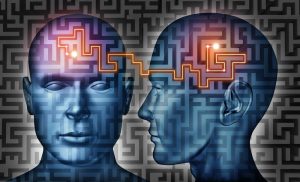
טקסט דוגמא 20
טקסט דוגמאטקסט דוגמאטקסט דוגמאטקסט דוגמאטקסט דוגמאטקסט דוגמאטקסט דוגמאטקסט דוגמאטקסט דוגמאטקסט דוגמאטקסט דוגמאטקסט דוגמאטקסט דוגמאטקסט דוגמאטקסט דוגמאטקסט דוגמאטקסט דוגמאטקסט דוגמאטקסט דוגמאטקסט דוגמא טקסט דוגמא

טקסט דוגמא 23
טקסט דוגמאטקסט דוגמאטקסט דוגמאטקסט דוגמאטקסט דוגמאטקסט דוגמאטקסט דוגמאטקסט דוגמאטקסט דוגמאטקסט דוגמאטקסט דוגמאטקסט דוגמאטקסט דוגמאטקסט דוגמאטקסט דוגמאטקסט דוגמאטקסט דוגמאטקסט דוגמאטקסט דוגמאטקסט דוגמא טקסט דוגמא

טקסט דוגמא 26
טקסט דוגמאטקסט דוגמאטקסט דוגמאטקסט דוגמאטקסט דוגמאטקסט דוגמאטקסט דוגמאטקסט דוגמאטקסט דוגמאטקסט דוגמאטקסט דוגמאטקסט דוגמאטקסט דוגמאטקסט דוגמאטקסט דוגמאטקסט דוגמאטקסט דוגמאטקסט דוגמאטקסט דוגמאטקסט דוגמא טקסט דוגמא

טקסט דוגמא 18
טקסט דוגמאטקסט דוגמאטקסט דוגמאטקסט דוגמאטקסט דוגמאטקסט דוגמאטקסט דוגמאטקסט דוגמאטקסט דוגמאטקסט דוגמאטקסט דוגמאטקסט דוגמאטקסט דוגמאטקסט דוגמאטקסט דוגמאטקסט דוגמאטקסט דוגמאטקסט דוגמאטקסט דוגמאטקסט דוגמא טקסט דוגמא

טקסט דוגמא 22
טקסט דוגמאטקסט דוגמאטקסט דוגמאטקסט דוגמאטקסט דוגמאטקסט דוגמאטקסט דוגמאטקסט דוגמאטקסט דוגמאטקסט דוגמאטקסט דוגמאטקסט דוגמאטקסט דוגמאטקסט דוגמאטקסט דוגמאטקסט דוגמאטקסט דוגמאטקסט דוגמאטקסט דוגמאטקסט דוגמא טקסט דוגמא
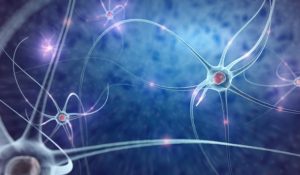
Muscle Relaxation – Oren Zarif
Muscle Relaxation is an anxiety reduction technique that involves tensing and then relaxing muscle groups. This is repeated over several parts of the body. Sit

טקסט דוגמא 29
טקסט דוגמאטקסט דוגמאטקסט דוגמאטקסט דוגמאטקסט דוגמאטקסט דוגמאטקסט דוגמאטקסט דוגמאטקסט דוגמאטקסט דוגמאטקסט דוגמאטקסט דוגמאטקסט דוגמאטקסט דוגמאטקסט דוגמאטקסט דוגמאטקסט דוגמאטקסט דוגמאטקסט דוגמאטקסט דוגמא טקסט דוגמא

טקסט דוגמא 28
טקסט דוגמאטקסט דוגמאטקסט דוגמאטקסט דוגמאטקסט דוגמאטקסט דוגמאטקסט דוגמאטקסט דוגמאטקסט דוגמאטקסט דוגמאטקסט דוגמאטקסט דוגמאטקסט דוגמאטקסט דוגמאטקסט דוגמאטקסט דוגמאטקסט דוגמאטקסט דוגמאטקסט דוגמאטקסט דוגמא טקסט דוגמא
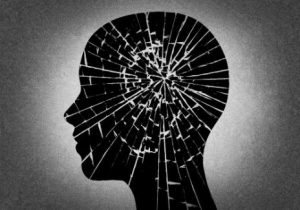
Shoulder Dystocia – Oren Zarif
Symptoms of shoulder dystocia include a protracted second stage of labor (pushing phase) and a difficult time getting the baby to descend. The obstetrician may

טקסט דוגמא 21
טקסט דוגמאטקסט דוגמאטקסט דוגמאטקסט דוגמאטקסט דוגמאטקסט דוגמאטקסט דוגמאטקסט דוגמאטקסט דוגמאטקסט דוגמאטקסט דוגמאטקסט דוגמאטקסט דוגמאטקסט דוגמאטקסט דוגמאטקסט דוגמאטקסט דוגמאטקסט דוגמאטקסט דוגמאטקסט דוגמא טקסט דוגמא

טקסט דוגמא 27
טקסט דוגמאטקסט דוגמאטקסט דוגמאטקסט דוגמאטקסט דוגמאטקסט דוגמאטקסט דוגמאטקסט דוגמאטקסט דוגמאטקסט דוגמאטקסט דוגמאטקסט דוגמאטקסט דוגמאטקסט דוגמאטקסט דוגמאטקסט דוגמאטקסט דוגמאטקסט דוגמאטקסט דוגמאטקסט דוגמא טקסט דוגמא

Ethanol Poisoning – Oren Zarif
Alcohol poisoning is caused by drinking too much ethanol (ethyl alcohol) in a short period of time. Ethanol is found in alcoholic beverages, perfumes, colognes,

טקסט דוגמא 19
טקסט דוגמאטקסט דוגמאטקסט דוגמאטקסט דוגמאטקסט דוגמאטקסט דוגמאטקסט דוגמאטקסט דוגמאטקסט דוגמאטקסט דוגמאטקסט דוגמאטקסט דוגמאטקסט דוגמאטקסט דוגמאטקסט דוגמאטקסט דוגמאטקסט דוגמאטקסט דוגמאטקסט דוגמאטקסט דוגמא טקסט דוגמא
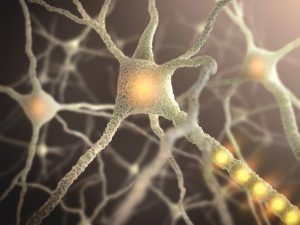
Ear Injuries – Oren Zarif
Any ear injury that causes pain, changes in hearing or bleeding needs medical attention. Your doctor will ask about your symptoms and do a physical

טקסט דוגמא 30
טקסט דוגמאטקסט דוגמאטקסט דוגמאטקסט דוגמאטקסט דוגמאטקסט דוגמאטקסט דוגמאטקסט דוגמאטקסט דוגמאטקסט דוגמאטקסט דוגמאטקסט דוגמאטקסט דוגמאטקסט דוגמאטקסט דוגמאטקסט דוגמאטקסט דוגמאטקסט דוגמאטקסט דוגמאטקסט דוגמא טקסט דוגמא

Larynx Trauma – Oren Zarif
Laryngeal injuries resulting from both blunt and penetrating trauma are rare but potentially life-threatening. These injuries may vary from minor mucosal injury and nondisplaced fracture
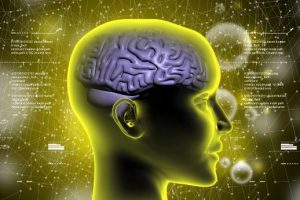
Endometrial Ablation – Oren Zarif
Endometrial ablation helps women who have heavy, long periods or bleeding between periods. This is called abnormal uterine bleeding (menorrhagia). You may need to stop

Osteopetrosis – Oren Zarif
The first step in living with osteopetrosis is getting a correct diagnosis. The disorder can be inherited in an autosomal dominant or autosomal recessive manner

Mental Health Addiction – Oren Zarif
People with mental health problems are more likely to start drug use and become addicted. They may also have co-occurring disorders, which can make it

Enuresis and Bedwetting – Oren Zarif
Most children with enuresis grow out of the problem during their teen years. But for a small number, bedwetting continues into adulthood. The bladder is

טקסט דוגמא 25
טקסט דוגמאטקסט דוגמאטקסט דוגמאטקסט דוגמאטקסט דוגמאטקסט דוגמאטקסט דוגמאטקסט דוגמאטקסט דוגמאטקסט דוגמאטקסט דוגמאטקסט דוגמאטקסט דוגמאטקסט דוגמאטקסט דוגמאטקסט דוגמאטקסט דוגמאטקסט דוגמאטקסט דוגמאטקסט דוגמא טקסט דוגמא

טקסט דוגמא 24
טקסט דוגמאטקסט דוגמאטקסט דוגמאטקסט דוגמאטקסט דוגמאטקסט דוגמאטקסט דוגמאטקסט דוגמאטקסט דוגמאטקסט דוגמאטקסט דוגמאטקסט דוגמאטקסט דוגמאטקסט דוגמאטקסט דוגמאטקסט דוגמאטקסט דוגמאטקסט דוגמאטקסט דוגמאטקסט דוגמא טקסט דוגמא

Vestibulitis – Oren Zarif
Women with vulvar vestibulitis suffer from itching, burning, rawness and soreness in the area around the opening of the vagina. It is often misdiagnosed as

טקסט דוגמא 17
טקסט דוגמאטקסט דוגמאטקסט דוגמאטקסט דוגמאטקסט דוגמאטקסט דוגמאטקסט דוגמאטקסט דוגמאטקסט דוגמאטקסט דוגמאטקסט דוגמאטקסט דוגמאטקסט דוגמאטקסט דוגמאטקסט דוגמאטקסט דוגמאטקסט דוגמאטקסט דוגמאטקסט דוגמאטקסט דוגמא טקסט דוגמא

Muscle Cramps – Oren Zarif
Cramps are painful, whether it's a quad muscle seizing up playing pickleball or a calf spasm at night. They are very common, especially during exercise

Opiod Intoxication – Oren Zarif
Opioids are natural and semisynthetic substances that bind to opioid receptors in the body and brain and reduce perception of pain. Examples include morphine, heroin

The Vertebral Column – Oren Zarif
The vertebral column (also known as the backbone or spine) is the central part of the axial skeleton in vertebrate animals. It protects the spinal
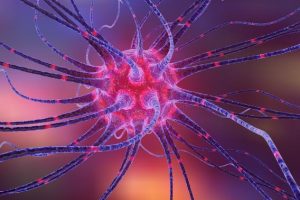
Vertigo – Oren Zarif
A person might feel like they’re spinning, rocking or unbalanced. Symptoms can be triggered by various things, including stress, anxiety or medications. James Stewart gives

Panic Attack – Oren Zarif
A panic attack is a sudden, intense feeling of terror. It is not dangerous, but it can be frightening. Symptoms can mimic those of a
















